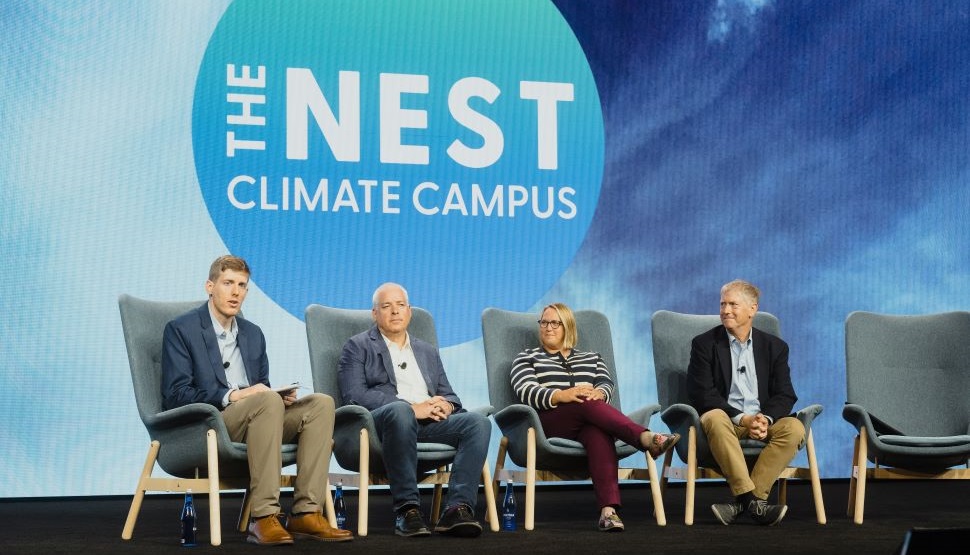5 highlights from FM's panel during Climate Week NYC
FM hosted a panel with The Nest Climate Campus during Climate Week NYC to discuss climate challenges and resilience strategies.

You can’t insure your way out of climate change.
That was the key message from a panel FM hosted in late September with The Nest Climate Campus, the official event partner of Climate Week NYC. The point here isn’t that global businesses don’t need insurance. They certainly do. But they must also do more to prepare for increasingly frequent, severe and unpredictable climate risks. They can collaborate with innovative partners – like FM, for example – to do just that.
FM’s panel on the topic included Dr. Angelika Werner, research area director for climate risk and resilience at FM; Michael Perron, renewable energy market lead at FM’s Renewable Energy unit; and Mike Smith, head of financial services technology at Altana.
Below are five highlights from the panel. And to watch the panel in its entirety, follow this link.
The climate is changing, and changing the nature of risk
Werner, a climate scientist and expert in tropical cyclones, says climate change is already a reality, with risks like flood having a “tremendous” impact in some areas of the world.
“It can’t be argued anymore,” Werner said.
But much of the impact of climate change depends on location. It’s not much help, Werner said, to think of everything getting worse.
“We need to re-evaluate what risk will actually look like in the future, because it’s not just going to be an extrapolation of the past,” Werner said.
The renewable opportunity – and the renewable challenge
Sheets of glass-covered equipment sitting out in a field, soaking up the rays, turning sunshine into clean electricity. How vulnerable could it be?
Very, it turns out. Hail in particular presents a huge – and difficult-to-predict – challenge to solar panels. As big losses have occurred, insurers have cut back on limits for hail, while banks and clients are asking for higher limits, Perron explained. That has prevented some projects from moving forward. That’s the problem FM Renewable Energy is trying solve.
“We’re hoping to work with clients … to develop projects more resiliently so insurers like us and others will be able to offer higher limits, and we can help convince banks that those limits are sufficient for their needs,” Perron said.
To illustrate the point, Perron brought a visual aid: a thin pane of glass is the only thing standing in the way between an icy chunk of hail and a major financial investment.
Panelist Mike Smith of Altana spoke about his company’s work to build a dynamic map of global supply chains. It’s a view at once broad but also incredibly detailed, down to the level of an individual shipment. That gives global businesses insights into risks, like when a key supplier and a backup supplier are both in the same climate-volatile region.
It takes an “organizational attitude” to embrace those sorts of data and tools as part of a resilience strategy, Smith said.
“The data and tools are available,” Smith said. “They’re continuing to grow and mature.”
Climate change is here – the time to act is now.
What should global businesses do to increase their resilience if they’re worried about their climate risk?
Two words: “Don’t wait,” Werner said. Companies can act now and invest into loss prevention beyond current standards to withstand risk levels they aren’t experiencing yet.
“The data is out there for you to understand what the risk is today, but also the tendency, at least, of how it’s changing,” Werner said. “Get those prevention measures in place now.”
More resources:
